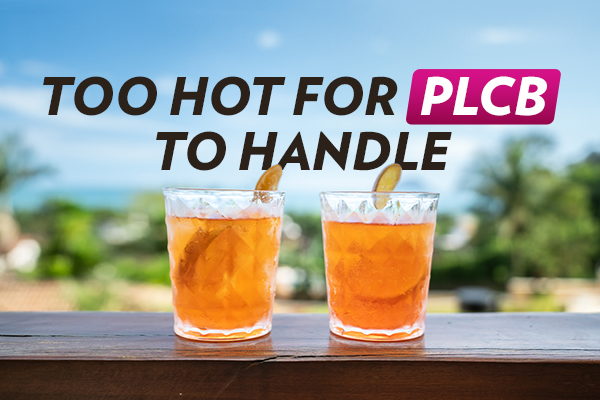Commentary

Liquor Licensing: Too Hot for PLCB to Handle
If there is one thing people across political divides can agree on, it’s that Netflix has been hitting it out of the park with shows to entertain those trapped inside due to COVID-19. In fact, their releases have been so perfect for these unprecedented times, that it has led to speculation—by me—that Netflix has been hoarding reality TV long before people began hoarding toilet paper.
For restaurant owners in Pennsylvania, the new release Too Hot To Handle is more than pure entertainment, as the winnings are almost enough to purchase an elusive liquor license.
The show is all about rewarding social distancing and sees how long 10 objectively good-looking, but subjectively single contestants can practice safe social distancing. It should be noted that while Pennsylvanians are encouraged to stay 10 feet apart, on the show anything greater than negative space is a win.
The all-knowing and sassy digital host of Too Hot to Handle named Lana offers her successful contestants a prize of $100,000, while Pennsylvanians’ are rewarded with no booze, high unemployment, and an opaque and ever-changing reopening plan.
Since the Pennsylvania Liquor Control Board (PLCB), is a little too into social distancing—of licenses—$100,000 might be enough to purchase a liquor license.
Retail licensing—which most restaurants use—have been limited to 1 per 3,000 residents. While it is theoretically possible that 3,000 residents all got together and unanimously decided that they would only like to purchase liquor at one restaurant, and then also unanimously decided which restaurant they would like it to be, it’s unlikely. In other words, not all the restaurants that would like to serve alcohol and not all the customers that would like to buy alcohol are able to do so.
Like all American’s learned with the hoarding of toilet paper and hand sanitizer, when consumers outnumber the available supply, the price skyrockets. For business owners in Pennsylvania this means the cost of purchasing a liquor license can be upwards of $500,000.
Maybe business owners should skip auditioning for Too Hot To Handle and start praying for a non-celebrity revamp of Who Wants to be a Millionaire?.
Expanding the number of establishments able to sell alcohol or easing the head-scratching regulations for current licensees could go a long way in helping businesses survive. Small businesses are at particularly high risk for permanent closure. A new poll from the U.S. Chamber of Commerce and MetLife found that one in four small businesses are less than two months away from having to close permanently. When applied to Pennsylvania, this would mean that approximately 250,000 out of 1 million small businesses are 60 days or less away from failure, and roughly 625,000 additional people are at risk of losing their job.
While large chains like WaWa and Sheetz can afford these high price tags on a liquor license, many small businesses can’t. Even if they can, these funds would be better used investing in the business and potentially putting some of the 1.8 million newly unemployed Pennsylvanians back to work. The state should be making it easier on small businesses, but instead it is refusing to let restaurants sell unused liquor for off premise consumption, and the PLCB is opposing the idea to allow consumers to purchase their groceries and alcohol at one register.
Thankfully there is a path forward that won’t send businesses and patrons fleeing to other states—and not just to meet the contestant Sharron Townsend—who like retail liquor resides just over the New Jersey border.
The state should privatize the sale of alcohol instead of relying on the antiquated PLCB. This would not only ease the burden on small businesses but would also improve the experience of consumers. At the very least, the state should eliminate the quota system, making all Pennsylvanians winners, with or without reality TV.